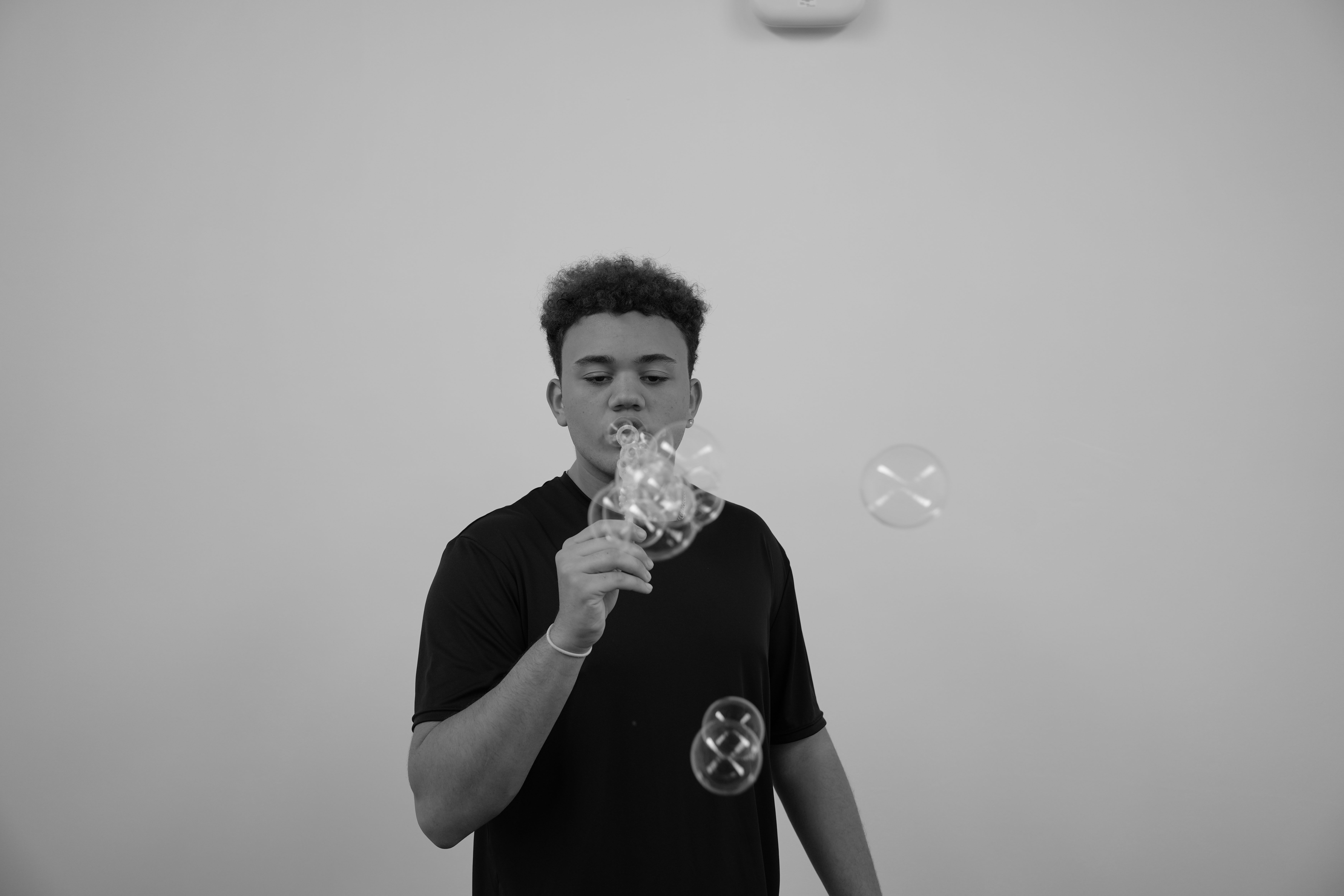We Are America
Popping the BUBBLE!
By Dexter

Taipei American School, Taipei, Taiwan
My extended family lives in Sweden. Living in Taiwan all my life, I considered Sweden to be the holy grail. While Sweden is often portrayed as a safe, white, and calm country it actually ranks higher per capita for crime in 2022 than America. Growing up, going to a private international American school in Taiwan, taught me how disconnected many of us are from everyday people who do not have the same advantages. Growing up, I never questioned leaving my bag unattended in the courtyard or cafeteria. Growing up, I never worried about getting jumped. I almost never had to worry for my sister's and mother's safety. I could talk “crap” to anyone and never even think twice about retaliation. Some of my classmate's arrived in BMWs with drivers. Some of my classmates rocked Louis Vuitton hoodies on picture day. Some of my classmates gave each other Jordans as birthday presents. Being surrounded by these types of people led me to believe that my family was economically underprivileged. I never understood that compared to the rest of the world, I was like my classmates, and I never realized what it was like living outside this “privilege bubble” until one summer day in Sweden. Since then, I have come to understand Ta-Nehisi Coates’ statement in Between the World and Me, “I really was in someone else’s country and yet in some necessary way, I was outside their country” (124).
My cousin and I were walking our grandma’s dog, Teddy, outside the projects where she lives. Yes, Sweden has projects. I recall Coates stating that this kind of housing is problematic because this kind of housing is “a moral disaster not just for the people living there but for the entire region, the metropolis of commuters who (drive) by, each day, and with their quiet acquiescence (tolerate) such a thing” (67). Suddenly we stop to let the dog urinate and I feel a nervous tension pumping from my toes to my fingertips. Through the corner of my eye, I spot a tall middle-aged man with missing patches of hair aggressively stumbling down the street getting vividly closer taking hard sniffs along the way. It was like the left side of his brain was having an intense altercation with the right side. My glance catches his attention like a hawk. He shifts his momentum and storms toward my frightened 12-year-old self, eyes like bullets shooting into my soul. Even though he stands four meters from me, it’s as if I can feel his breath on my neck. He throws his hands up menacingly and intimidatingly exclaims, “¿Qué pasa?” I anxiously look away. After showing me his toothless smile, he scoffs and walks toward the entrance of the building. My cousin catches my frightened face and proceeds to laugh hysterically. I join her nervously giggling; however, our chuckles are quickly interrupted by the sound of screaming and breaking glass. It’s him yelling through the broken window holding a rock. I pull out my phone and call my mom with a foggy distressed mind. Three minutes pass. My dad arrives to escort us back to my grandmas' house, carefully avoiding the man.
POP!
Four years later, my cousin still teases me. Reflecting on these childhood summers and winters in Sweden, I realize that I had turned a blind eye to guns, drugs, and poverty choosing to believe these things only happened in the movies. I have heard gunshots outside my grandmas' window, and I have heard about people dying on her street, but this incident upended my way of thinking about myself and the world. I placed myself above danger thinking I was impenetrable. However, that was the day the reality of life became more apparent. That was the day I found out that I could be harmed. That was the day my eyes were opened to the light. That was the day my privilege bubble popped.
© Dexter. All rights reserved. If you are interested in quoting this story, contact the national team and we can put you in touch with the author’s teacher.